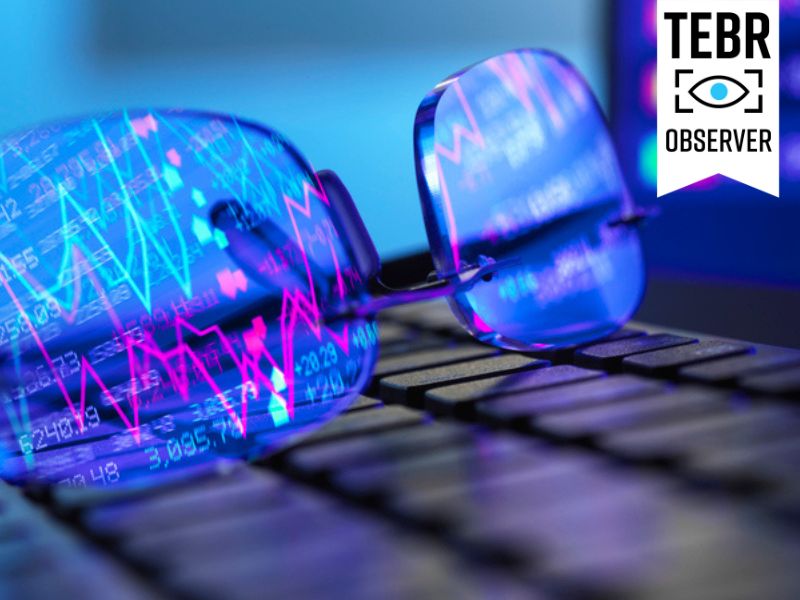The Future of Consumer Hardware for AI: What’s Next? – The European Business Review

By Emil Bjerg
Ray Ban sunglasses powered by AI, Humane’s AI pin, Johnny I’ve’s collaboration with Sam Altman. Will a new generation of AI powered products end the winter of innovation for consumer hardware?
Over the past fifteen years, we’ve seen limited innovation in hardware: phones and computers are getting updates, iPads are getting thinner, but we’re largely using the same devices as in the late 2000s. Bobak Tavangar, CEO and co-founder of Brilliant Labs, says that “We’ve gone through a bit of a winter where a lot of consumer hardware just started to look and feel the same.” Now, he adds “it’s exciting to see a lot of originality in hardware.”
In an interview with The New York Times, Johnny Ive, Apple’s former chief design officer, confirmed a collaboration with Sam Altman. With Ive leading the design, they’ve set out to create new hardware for AI. The collaborators met through Airbnb’s founder and got into talks about “how generative A.I. made it possible to create a new computing device because the technology could do more for users than traditional software since it could summarize and prioritize messages, identify and name objects like plants, and eventually field complex requests like booking travel.”
Few details are still confirmed about their project, but The New York Times writes that they could “raise up to $1 billion in start-up funding by the end of the year from tech investors.”
A lot of the new developments in AI consumer hardware falls into the category of wearables.
Humane’s AI Pin has been getting the most attention. Founded by former Apple senior staff, the device is meant to be a wearable AI alternative to smartphones. The promise of the AI Pin is that “whether you’re making calls, sending messages, seeking answers, capturing moments, taking notes, or managing your digital world, AI Pin acts as your assistant and second brain, allowing you to be present and in flow.”
Critics have highlighted its inconsistent performance, with many users reporting that it struggles to execute basic tasks effectively, often falling short of its ambitious promises. Reviewers noted that the device is “bad at almost everything” it attempts to do, from voice recognition to image projection, leading to frustration during everyday use.
A collaboration between Meta and Ray-Ban is another example of a new generation of AI-powered wearables. The new Ray-Ban smart glasses let users take pictures and videos, and with AI integration, it can also process its surroundings. Just like with Humane’s AI Pin, Meta admits that their AI “may not always get it right.”
Will the new AI wearables become a new standard consumer hardware? Humane’s AI Pin has had a rough reception, and the general public has historically reacted against wearable smart glasses. However, their design shows the advantages AI brings to consumer hardware: making devices closer to functioning like an assistant, helping categorize what we see and hear.
AI is increasingly integrated into smartphones, from enhancing existing features—like better tools and assistants—to introducing entirely new capabilities like real-time translation and content creation.
Both Google, Samsung, and Apple have announced new AI features and started integrating them into their new phones. The race to dominate the smartphone market will likely be centered around which company does the better job of integrating AI.
From smart clothing that helps adapt to environmental conditions or user needs to wearables that incorporate advanced health monitoring capabilities powered by AI, we’re in the midst of an AI hardware revolution, and we’ve just started seeing the results.
It’s beyond doubt that AI is transforming consumer hardware. Will many of us switch from smartphones to wearable assistants, or will we see an AI evolution transforming our smartphone use? Likely, a good mix of both, while the mainstream use cases of AI hardware are still being shaped.
Related
European markets fall and euro soars amid Trump tariff delays
European stock markets have slumped after Donald Trump’s second reversal on tariffs caused deep uncertainty among investors, while the euro was on track for i
European Central Bank cuts interest rates, keeps door ajar to…
Open this photo in gallery:The European Central Bank headquarters, in Frankfurt, Germany, on June 6, 2024.Wolfgang Rattay/ReutersThe European Central Bank cut i
European security, economy without Türkiye ‘impossible,’ says business leader –…
ISTANBUL Türkiye’s strategic importance for Europe's future is both undeniable and multifaceted, encompassing critical areas suc
Westcon-Comstor promotes Rene Klein to lead unified European business
Westcon-Comstor has announced the appointment of Rene Klein as executive vice president for EMEA, tasked with leading the company’s new unified leadership st











